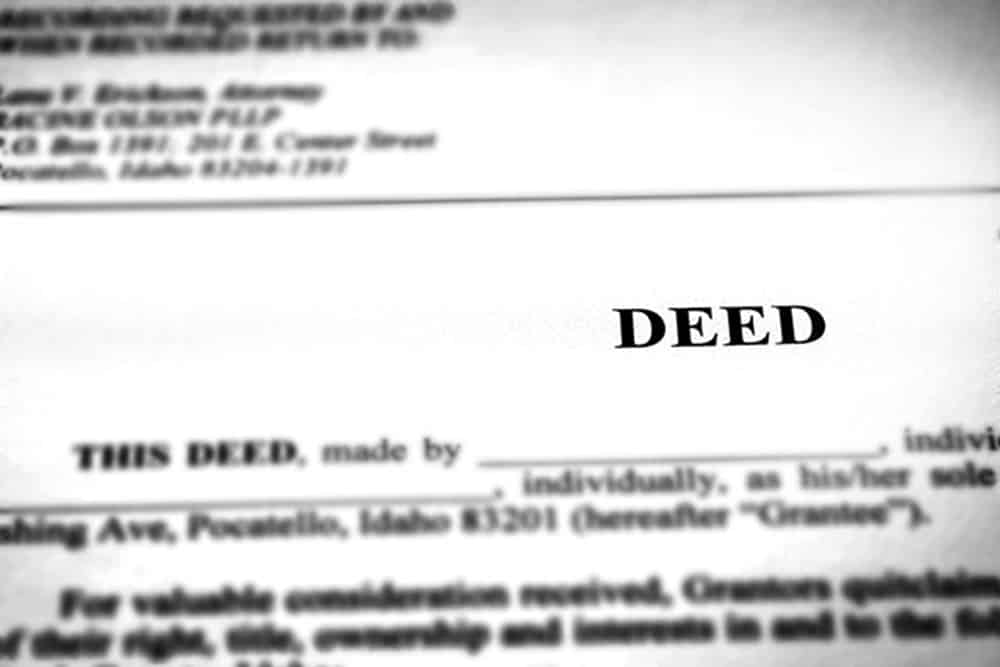If you’re thinking about or trying to sell your home, you’ve likely realized that there is lots of paperwork involved. From contracts to appraisal reports to closing settlements to deeds, it can all be overwhelming.
While the details of a real estate closing can get complicated, there are some key components and documents that it’s important to understand. One such document is the deed. Here is an overview of everything you need to understand about property deeds before selling your home.
What is a Property Deed?
A property deed is a legal document that defines ownership. It’s a signed legal document that transfers and confirms ownership. The deed is filed as a public record in the county where the property is located and is what is used to determine who owns the property.
To officially transfer ownership of your home when you sell it, you’ll need to transfer the deed. This process generally involves working with an attorney, who will prepare the new deed for closing. At the closing, when you sign over the deed, the property officially transfers to the buyers. A few weeks after closing, the new buyer will get their copy of the deed. At this point, the sale is a public record and filed with the county.
At its simplest, a property deed is just a sheet of paper that serves as proof of ownership. When you purchased your property, the deed was signed over to you. Similarly, when you sell your home, you must go through the same process to sign over the deed to the new owners.
What Must the Deed Include?
While the specific requirements of what must be included in the deed vary from state to state, there is some common information that is consistently included in deeds. Perhaps most important, the deed includes a legal description of the property. This description gives details of the property and discloses anything that buyers need to know.
In addition to the description of the property, the deed must have the names and addresses of the grantor (the seller) and the grantee (the buyer). It must also include a granting clause, sometimes referred to as words of conveyance, that transfers rights and officially details the rights being granted and any parties taking title. Further, it includes a consideration clause, which states what the grantor received in return for the property. Finally, it must be signed by the grantor.
Types of Deeds
One thing that can make deeds confusing to homeowners and buyers are the different types of deeds used in property transfers. Understanding some of the most commonly used types of deeds can make the process a little less confusing.
A general warranty deed is the most common type of deed and is what is generally used in home sales. This type of deed provides buyers with the most protection and essentially says that the seller has clear title and the right to sell the property. It also pledges that the seller has no knowledge of title issues “for the life of the property.”
The special warranty deed similarly states that the seller has clear title, but it only guarantees clear title for the time that the seller has had it. This type of deed is most commonly used in commercial real estate transactions.
A grant deed provides even less protection and states that the seller has clear title and no knowledge of anything impacting title. However, with a grant deed, the seller will not defend title against others that have claims after the sale. With this deed, there are no protections or guarantees.
A quitclaim deed is often used when a house is gifted to a person, and it simply transfers rights and ownership to the grantee. It does not provide any guarantee that the seller is able to do so.
Finally a bargain and sale deed is used in a tax sale or foreclosure. In these cases, the grantor does not have clear title and provides no protections for buyers.
Conclusion
Property deeds are an essential part of property transfers as they define and confirm ownership. While they’re important, they can also be complicated and overwhelming for sellers. Whether you’re selling your home with an agent or for sale by owner, you’ll likely need to work with a lawyer at closing to make sure that the deed is properly transferred.
While selling and closing on a home is a complicated process, there are alternatives. Home Buyers Birmingham buys houses as-is for cash. Our team of experienced property investors handle all aspects of the closing and ensure that everything is handled correctly. Sellers don’t have to worry about any paperwork or details, but instead just show up at the closing, sign the closing documents, and walk away with cash in hand.
Complete the online form or call us today at (205) 687-0604 to learn more about our process or to get your cash offer.
Home Buyers Birmingham
1821 11th Avenue South Suite #55331
Birmingham, Alabama 35205


